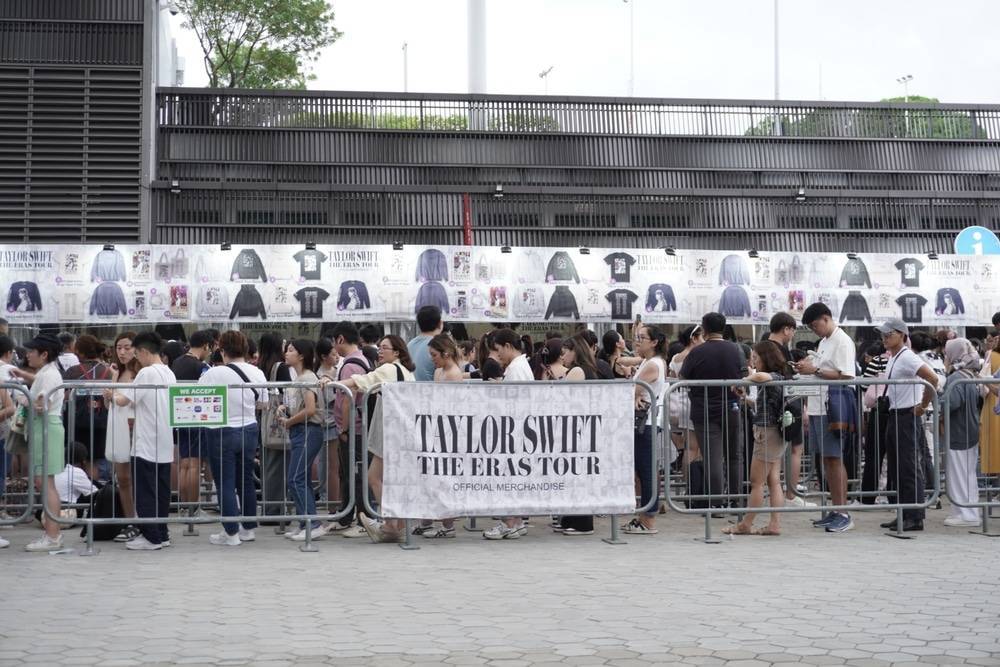With mega music stars like Coldplay, Taylor Swift, Bruno Mars and Ed Sheeran holding concerts in Southeast Asia, there is one medical condition to note. In the aftermath of an electrifying concert, many individuals find themselves grappling with an unexpected guest: post-concert depression (PCD).
This phenomenon, often overlooked, can cast a shadow over the joy and exhilaration experienced during live music events, leaving fans feeling empty, sad, and disconnected once the lights go out and the music fades. Dr Lim Boon Leng, a psychiatrist at the Centre for Psychological Wellness, provides his clinical insights.
The Highs and Lows of Live Music
Live concerts offer a unique form of escapism. For a few hours, attendees are transported into a world where their favourite artists perform just a breath away, and the connection between the music and the crowd feels palpable. The intense emotional highs, the sense of unity with other fans, and the personal significance of the music can create peak experiences that are hard to replicate in everyday life.
However, the abrupt return to reality post-concert can trigger feelings of sadness and longing akin to withdrawal. This is what is commonly referred to as post-concert depression. It’s a testament to the power of live music to affect our emotions deeply but also highlights the challenges of transitioning back to normalcy after such a peak experience.
Dr Lim describes it as “the feeling of sadness or emptiness that some people experience after attending a highly anticipated concert or live event. It’s not a recognised clinical condition in psychiatry, but many people report experiencing it.”
The Science Behind the Blues
The feelings associated with PCD are not merely figments of one’s imagination but are rooted in our brain’s chemistry. Live concerts stimulate the release of endorphins, dopamine, and other feel-good chemicals, contributing to the euphoria attendees experience. Once the event concludes, the sudden drop in these chemicals can leave individuals feeling downcast.
Moreover, the anticipation of a concert can serve as a significant emotional anchor. When it’s over, the absence of this anticipated event can leave a void, further contributing to feelings of emptiness or sadness.
Symptoms
Dr Lim shared that “Post-concert depression is not a clinical condition, but it can feel like a mild form of depression or sadness. Symptoms include feeling low, empty, or emotionally drained after the event, difficulty returning to normal routines or a lack of interest in activities that were enjoyable before the event, a strong desire to relive the experience, and a tendency to withdraw from social interactions. It’s important to distinguish these feelings from more serious mental health conditions. If these symptoms persist or significantly impair one’s ability to function in daily life, it may be indicative of a more serious issue.”
Coping with Post-Concert Depression
Acknowledging the feelings associated with PCD is the first step towards mitigating its impact. Here are several strategies to help navigate through the post-concert blues:
Reflect and Relive
Take time to reflect on the concert experience. Organise your photos and videos, or write down what made the concert special for you. Sharing your experiences with friends or fellow fans online can also keep the positive vibes flowing.
Stay Connected
Engage with the artist’s music and the fan community. Streaming the concert playlist, participating in fan forums, or planning for the next concert are ways to maintain a connection with the experience.
Create a Post-Concert Plan
Having something to look forward to can help mitigate the sense of loss. Plan a get-together with friends you attended the concert with, or start a new project. Redirecting your focus can ease the transition back to daily life.
Practice Self-Care
Be kind to yourself. Recognise that it’s okay to feel down and allow yourself time to readjust. Engage in activities that uplift you, whether it’s exercise, reading, or another hobby.
Long-Term Dangers of Post-concert Depression
Dr Lim added, “It is common to feel sad after attending an event, but for some people, this can lead to a pattern of emotional instability. If these feelings become too intense or last for long periods, it is important to seek professional help. Speaking with a mental health professional can provide strategies to manage these feelings and address any underlying issues that may contribute to the intensity of the post-event blues.”
Conclusion
Post-concert depression is a real and valid response to the end of a highly anticipated and emotionally charged event. By understanding the mechanisms behind PCD and employing strategies to cope with its effects, fans can preserve the joy of live music experiences without being overshadowed by the post-concert blues. Remember, it’s the love for music and the shared experiences that truly matter, and those are never lost, even when the concert ends.

